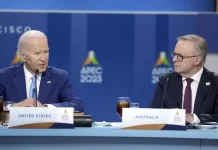Palau finally adopts a new tax regime, a Value Added Tax (VAT) system after more than 30 years using Gross Receipt Tax (GRT) system.
President Surangel Whipps Jr signed the bill into law, RPPL 11-11, on Wednesday, 29 September. The new tax law, referred to as Palau Goods and Services Tax (PGST) will take effect on January 2023.
“Our tax system was inherited from the United States and is now an outdated and inefficient method of assessing taxes, managing records, and measuring our economic output. Most of our foreign trade and investment partners already use a Value Added Tax system, and now we will join those partners and many other Pacific Island nations in adapting to a new tax system,” stated President Surangel Whipps Jr in his transmittal letter to both houses of OEK.
Findings in the new tax law cite ROP’s 2007 Tax Review Taskforce which said that the current tax system, the GRT, “discourages economic growth by disadvantaging new and small businesses.”
Not everyone was sold on the VAT system and the House of Delegates had resisted the adaption of the bill earlier with some of the members adamantly saying that it will not pass the House. Letters from some local business people to OEK warned that the new tax system will raise the cost of goods for local consumers, most of whom they say can barely afford the current prices of goods.
Despite certain expressed resistance, the bill passed the 2nd and 3rd reading in the House within two days, 28 – 29 September.
Enactment of the tax reform bill was one of the requirements for the last installment of US$15 million from the Asian Development Bank Policy-Based Loans. It is one of the identified sources of revenue for the FY 2022 national budget. Without it, Palau’s budget will be reduced by 18 percent than the originally submitted budget for FY 2022 which was already reduced compared to FY 2021 Budget.
The new tax law (PGST) imposes 10 percent on all imported goods upfront with some exceptions. Businesses that gross over US$50,000 per year and are not registered as PGST will pay the four percent gross revenue tax as it is applied today while those earning US$50,000 or less in gross sales a year, only file but do not pay taxes.
The law also imposes Business Net Income Tax, and Excise and Carbon Tax. The law also mandates refunds of income tax assessed of people earning US$15,000 or below per year.
The discussion over adopting VAT system has been around since 2007 and was introduced a couple of times but did not garner enough votes to pass OEK.This time around, with the ongoing pandemic’s impact on local economy, the bill was finally enacted into law.
“In light of our economic realities, it is even more important for the Olbiil Era Kelulau to pass the tax reform bill..ln addition to the revenue benefits inherent with the passage of the tax reform bill, it is time for us to transition from our antiquated system and bring equity to our tax structure,” stated Whipps in his transmittal letter that accompanied initial budget bill submission.
SOURCE: ISLAND TIMES/PACNEWS















